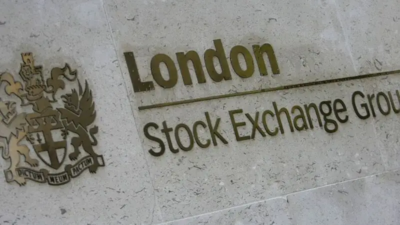Why Zillow is worried about America’s housing market shakeup
A version of this story first appeared in CNN Business’ Before the Bell newsletter. Not a subscriber? You can sign up right here. You can listen to an audio version of the newsletter by clicking the same link.
Since its founding nearly two decades ago, Zillow has revolutionized the way Americans buy, rent, sell — and fantasize — about housing in the US.
But a settlement that breaks the grip of powerful real estate agents could trigger a range of problems for the platform already suffering from declining traffic in an increasingly competitive housing market.
The company’s stock has dropped nearly 13% since Friday’s $418 million settlement between the National Association of Realtors and groups of home sellers which ended the standard 6% commission for Realtors.
It’s a sign that investors fear the settlement could have seismic effects through the housing industry, changing everything from how much Americans pay to buy and sell homes to the income of those in the industry and even the technology underpinning it.
Zillow made this point itself in a 10-K filing last month, when the company warned that, “if agent commissions are meaningfully impacted, it could reduce the marketing budgets of real estate partners or reduce the number of real estate partners participating in the industry, which could adversely affect our financial condition and results of operations.”
But at least one analyst says that the media are blowing this way out of proportion.
“It was not the monetary headline that drove [Zillow’s] price decline,” said Dan Kurnos, managing director at the Benchmark Company. “It was the multitude of articles ‘guaranteeing’ the death of the real estate agent and the buyer’s commission that likely prompted the drop.”
How Zillow makes money
Despite those problems, Zillow still leads in its market.
With data on well over 160 million US homes, its residential revenue has outperformed the real estate industry average for six consecutive quarters.
Still, it’s a down market. Zillow reported that it outperformed the residential real estate industry by 12 percentage points in 2023. Total revenue industry-wide declined by 17% from the year prior while Zillow’s fell by 5%.
Now the company has hit a crossroads with the NAR settlement and will likely need to adjust its business model accordingly.
That’s because one of the main ways Zillow makes money is through lead generation for real estate agents. It offers a product called Premier Agent that allows agents to pay to be connected with the customers most likely to purchase homes.
Zillow also makes money from agents who pay to have a stronger presence on the site and who pay for AI-enhanced listings, which highlight features that homebuyers in a particular market are most interested in.
So if the ruling reduces fees for agents, as expected, they’ll likely have less to spend on these products. Unless Zillow changes its model, that could lead to significant revenue drops.
Fair warning
Still, some analysts say that Zillow has been preparing for these changes for months.
For anyone who’s been listening to Zillow on calls or on recent conferences, Kurnos said, the settlement is what the company had been expecting.
Other analysts disagree.
Spruce Point Capital, an activist short-seller group, began a campaign against Zillow before the settlement came out, saying changes to real estate agent commissions, among other pressures, could “disrupt the real estate commission structure.”
“Based on our investigation, we estimate a 40% to 60% downside risk,” wrote Spruce Point analysts.
Uncertainty prevails
The settlement still isn’t final.
A judge needs to sign off on it, and even then “the industry is likely to use informal mechanisms to try to hold the line on 5% to 6% commissions,” Stephen Brobeck, a senior fellow at the Consumer Federation of America, an umbrella group of nonprofit consumer organizations, told CNN.
Zillow echoed that uncertainty in a statement to CNN on Monday. “This shift in the structure of real estate transaction costs is too new to understand how it will impact housing market dynamics,” a spokesperson said.
But, the spokesperson added, Zillow remains optimistic. The NAR settlement, they said, “is merely a next step in what has already been a lengthy and complicated process. We continue to believe positive changes for consumers also benefit the agents who serve them well — on both sides of the transaction.”
The company has been working to find other ways to make money — it has invested heavily in the rental market, which represented 20% of revenue in the second half of 2023. It’s also focusing on home loans, display ads and new real estate software.
“Zillow has become both the tech backbone for the real estate industry and generates the vast majority of their revenues from the top 20% of agents,” said Kurnos. Zillow could make even more money if real estate agents offer their services piecemeal, he said.
The competition
Redfin, a similar real estate platform, also fell on the news. Shares have plummeted about 12% since Friday.
But one potential winner has emerged from the chaos.
Shares of CoStar Group, parent company of Homes.com, have shot nearly 10% higher since Friday.
Homes.com plans to spend $1 billion in advertising this year. It operates by charging agents for extra visibility on their listings so that the buyers can go directly to the listing agent.
This is a critical difference in a future where more buyers are likely to be their own agent.
The terms of the NAR settlement could make seller agents more important in transactions, wrote analysts from William Blair in a note. That’s another huge plus for the CoStar business model.
The takeaway
There’s a lot of disagreement between analysts about the future of Zillow and the real estate industry at large.
Kurnos rates Zillow a buy with a price target of $60 a share. Bank of America has downgraded the stock from “buy” to “neutral” and Spruce Point Capital says to short shares.
What’s clear is that Zillow, and the real estate industry, are at an inflection point.
Elisabeth Buchwald and Anna Bahney contributed to this report
Maybe You Like
London Stock Exchange urged to do more to hold onto retail traders
The UK stock market needs to improve investor communication and engagement in order to retain its individual traders, according to a report from online trade and investor provider CMC Markets. ADVERTISEMENTUK retail investors are increasingly...
Hargreaves Lansdown rejects private equity takeover bid
The UK investment platform says the offer from a group including the Abu Dhabi Investment Authority undervalues the firm. ADVERTISEMENTHargreaves Lansdown has rebuffed a takeover proposal worth £4.67 billion (€5.48 billion) made...
Ferrovial set to offload UK regional airports amid Heathrow deal uncertainty
Ferrovial is planning to sell its stake in three UK regional airports amid difficulties in finalising its £2.4bn sale of a 25% stake in Heathrow. ADVERTISEMENTSpanish infrastructure company Ferrovial is reportedly putting up for sale...



























